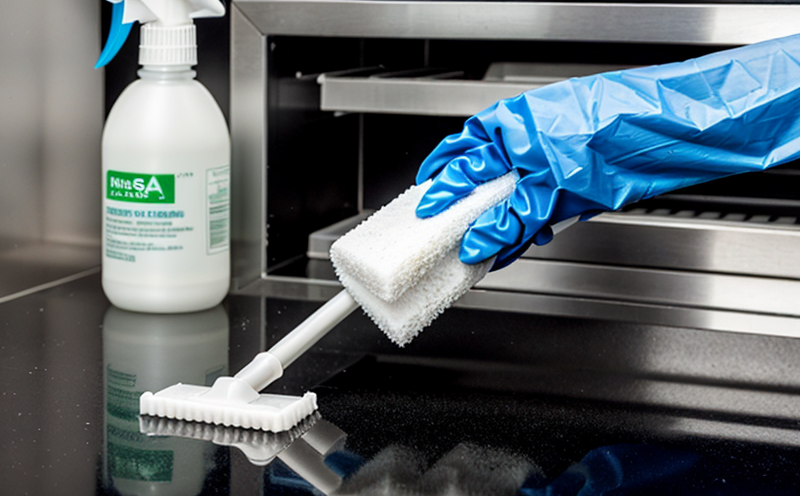EN 14563 Antiviral Performance Testing of Plastic Hygiene Surfaces
The European standard EN 14563 specifies the method for determining the antiviral performance of plastic hygiene surfaces. This testing is critical in ensuring that materials used in healthcare, food preparation areas, and public spaces are effective barriers against viral transmission.
Testing involves exposing a sample surface to various strains of viruses under controlled conditions and then assessing the reduction in viable virus particles post-exposure. The standard provides detailed protocols for specimen preparation, exposure time, and measurement methods. Compliance with this standard is essential for manufacturers aiming to demonstrate robust antiviral efficacy.
The testing process requires meticulous attention to detail from sample selection to data analysis. Specimens are typically cut into standardized pieces to ensure uniformity across tests. The test setup includes a controlled environment where the specimen is exposed to a known viral load, followed by incubation periods that allow for viral replication and potential inactivation.
The efficacy of antiviral agents on plastic surfaces can vary significantly depending on factors such as surface chemistry, texture, and exposure duration. Therefore, thorough understanding of these variables is crucial for accurate testing and interpretation of results. This standard helps bridge the gap between theoretical knowledge and practical application by providing a robust framework.
EN 14563 specifies several key parameters including incubation time, virus strain used, and the antiviral agent applied. These parameters are critical in ensuring consistency across different tests conducted by various laboratories. The standard also outlines acceptance criteria which define what constitutes an acceptable level of viral inactivation.
For accurate testing, it is essential to use appropriate equipment such as incubators capable of maintaining precise temperature and humidity levels throughout the test duration. Additionally, specialized tools for handling specimens safely without introducing contaminants are necessary. Laboratories must adhere strictly to these guidelines to ensure reliable results that can be trusted by stakeholders.
The importance of this testing cannot be overstated given its role in enhancing public health safety measures during outbreaks or pandemics. By adhering to EN 14563, manufacturers contribute significantly towards reducing the spread of infectious diseases through effective surface disinfection practices.
Applied Standards
| Standard Name | Description |
|---|---|
| EN 14563 | This standard specifies the method for determining the antiviral performance of plastic hygiene surfaces. It outlines procedures for specimen preparation, exposure conditions, and measurement techniques. |
| ISO 20743 | A similar international standard that provides guidelines on testing antimicrobial properties of textiles; while not directly applicable to plastics, it shares commonalities in methodology which can provide additional insights into surface treatment. |
Eurolab Advantages
At Eurolab, we pride ourselves on offering comprehensive and accurate EN 14563 testing services for plastic hygiene surfaces. Our experienced team ensures that every aspect of the test is conducted meticulously to meet or exceed industry standards.
- State-of-the-art facilities equipped with advanced technology tailored specifically for material science analyses.
- Trained experts who stay updated on latest developments within the field, ensuring they can offer relevant advice and insights beyond just performing tests.
- Comprehensive reporting services that not only provide numerical results but also interpret them in context, helping clients understand what their data means practically speaking.
Quality and Reliability Assurance
- We maintain accreditation to ISO/IEC 17025, ensuring our laboratory meets internationally recognized criteria for technical competence.
- All personnel involved in EN 14563 testing undergo rigorous training programs specific to this type of analysis, guaranteeing high proficiency levels across all stages of the process.





